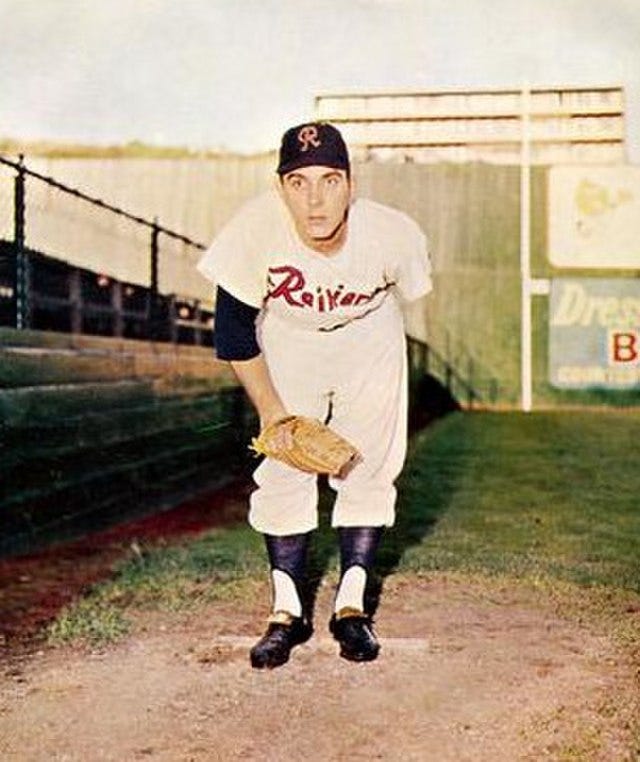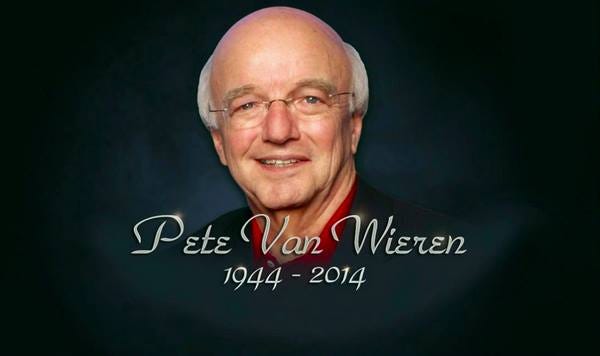'62 Senators Featured Fast-Paced Pitching
ALSO: FRICK AWARD BALLOT OMISSION IS A GLARING MISTAKE
IBWAA members love to write about baseball. So much so, we've decided to create our own newsletter about it! Subscribe to Here's the Pitch to expand your love of baseball, discover new voices, and support independent writing. Original content six days a week, straight to your inbox and straight from the hearts of baseball fans.
Pregame Pepper
Did you know…
Thanks to Pete Alonso’s ninth-inning, two-run homer that gave the Mets a 4-2 win in Milwaukee and a ticket to the NLDS, teams are now 3-82 when entering the ninth inning of a post-season elimination game, along with the Cardinals in Game 5 of the 2012 NLDS against the Nationals and the Braves in Game 7 of the 1992 NLCS against the Pirates . . .
Over-anxious Atlanta hitters fanned 23 times and walked only once in losing both playoff games in San Diego . . .
Ironically, the Braves will start the 2025 season there . . .
Expect the Dodgers and Braves to be the top bidders for free agent shortstop Willy Adames, a sudden slugger coming off a career year in Milwaukee . . .
Even after coaxing 65-year-old manager Terry Francona out of retirement with a three-year contract, the low-budget Reds will be more concerned with cutting their $100 million payroll than adding to it with veteran free agents.
Leading Off
‘Fastest’ pitchers in 1962? The Washington Senators’ staff
By Andrew Sharp
The lengthening of MLB games has led to rule changes aimed at producing more action in less time. Some fans like the changes. Others find them appalling. The “Manfred man” runner on second base to begin an extra inning seems to draw the most ire.
Banning extreme shifts, which had not existed much 20 or 30 years ago, doesn’t seem to have had a major impact. Widening the bases surely has avoided at least a few injuries and has encouraged more base-stealing. That’s exciting and good. Making relief pitchers face at least three batters probably has helped.
The pitch clock, on the other hand, is about as well intended as the path to hell. Yes, pitcher and batters take too long to do what they are supposed to do. But just let the umpire have the discretion to enforce the time rule without mandating a violation.
It did not have to come to this. I am old enough to recall when games rarely lasted more than two-and-a-half hours. Take, for instance, the last-place 1962 Senators.
Led by the incredibly fast-working Don Rudolph, the Washington pitching staff led the league in games completed in less than two hours: 18. The Cardinals led the N.L. with just five games of less than two hours.
The Senators also led in games finished in less than two hours and 10 minutes, the then-standard for quickness, with 34. No other team in either league had more than 25.
Rudolph won a game in 1962 that lasted 92 minutes, tied for the shortest game of the season. The next day, teammate Dave Stenhouse pitched a 1-0 shutout in an hour and 44 minutes. Rudolph started six games that were over in 1:47 or less. Claude Osteen, another Senator, pitched seven games in less than 2:10, third most in the league. In contrast, every New York Mets game in 1962 took longer than 2:10.
Washington completed 18 games in less than two hours – on the way to 100 losses, of course. But why prolong the agony?
“It should not require three hours to do a two-hour job,” Rudolph told the Sporting News in January 1963. The average length of a game in 1962 was two hours and 38 minutes. Don’t blame the Senators.
Average games each year in the Sixties ranged from 2.30 to 2:38. Between 1954, when the average first reached 2:30, and 1981, game lengths on average remained in a narrow range – 2:29 to 2.38.
Major League games first began averaging more than two hours in 1934. From 1911, the first year game times were tallied, until 1933, the average length of games remained between 1:51 and 1:59.
The average game length topped three hours for the first time in 2000 before falling below that for the next 11 seasons. From 2012 to 2022, the typical game lasted at least three hours.
Then came the rule changes. The average fell from 3:06 in 2022 to 2:42 in 2023 and is likely to fall below 2:40 this season. Don Rudolph would be pleased.
Andrew C. Sharp is a retired daily newspaper journalist and a SABR member who lives in New Jersey and blogs about D.C. baseball at washingtonbaseballhistory.com
Cleaning Up
Hall of Fame’s 2025 Frick Award Ballot Raises Serious Questions
By Dan Schlossberg
With both Skip Caray and Ernie Johnson among the 10 ex-broadcasters nominated for the 2025 Ford Frick Award, how in the world did the ballot committee overlook Pete Van Wieren?
During the three decades that trio manned the Braves’ broadcast booth, Van Wieren was clearly the lead announcer, with Caray No. 2 and the soft-spoken Johnson the primary analyst.
Van Wieren, a Cornell grad whose broadcast career began when a Binghamton, NY station hired him as a weatherman, was such a student of the game that he acquired a highly appropriate nickname: the Professor.
His knowledge of both baseball and broadcasting was so impeccable that he was widely considered among the best men in the booth during a tenure that began after broadcasting mogul Ted Turner hired him in 1976.
His omission is compounded by the fact that the apparently-inseparable San Francisco duo of Mike Krukow and Duane Kuiper return again despite several years of rejection.
Others on the new ballot are Rene Cardenas, Gary Cohen, Jacques Doucet, Tom Hamilton, Dave Sims, and John Sterling. All but Caray and Johnson are still living.
Results of voting for the Frick Award, given annually for excellence in broadcasting, will be announced at the Dallas Winter Meetings on Dec. 11, with the winner honored during Hall of Fame Induction Weekend on July 26, 2025.
This ballot is the third of four straight featuring local and national voices whose careers extended into or began after the advent of the Wild Card Era in 1994.
After that cycle ends, voters will consider candidates whose careers ended before the Wild Card Era.
This year’s electorate includes the 13 living Frick Award recipients and three broadcast historians or columnists. Past honorees charged with picking the 2025 winner are Marty Brennaman, Joe Castiglione, Bob Costas, Ken Harrelson, Pat Hughes, Jamie Jarrin, Tony Kubek, Denny Matthews, Al Michaels, Jon Miller, Eric Nadel, Bob Uecker, and Dave Van Horne.
Also doing the voting are authors David J. Halberstam and Curt Smith plus Barry Horn, formerly of the Dallas Morning News.
Past Frick winners Halberstam, Smith, Brennaman, Castliglione, and Nadel created the ballot.
With the singular exception of Sims, all of those on the ballot were active baseball broadcasters for more than 30 years. Cardenas, who created the first Spanish-language broadcast in 1958, and the French-speaking Doucet, who worked for both the Montreal Expos and Toronto Blue Jays, are both foreign-language nominees.
Cohen is finishing his 36th year in the booth of the New York Mets, while Hamilton has been the radio voice of the Guardians-nee-Indians for 35 seasons. Sterling broadcast Braves games from 1982-87 and then spent 36 years with the Yankees before retiring earlier this season. He later returned to call post-season games for the team.
Johnson, Krukow, and Kuiper were players before turning to broadcasting.
The annual award honors the late Ford C. Frick, a broadcaster, sportswriter, and league president who later became Commissioner of Baseball.
Timeless Trivia
During the ‘24 season, the Braves were 11-57 (.162) when yielding at least four runs . . .
Cleveland’s unheralded Jose Ramirez just missed joining Alfonso Soriano as the only players in the 40-40-40 Club (doubles, home runs, stolen bases) . . .
At 52, Dodgers manager Dave Roberts is under contract through 2025 but has a solid resume: eight NL West titles in nine years since becoming manager in 2015 . . .
Yankee manager Aaron Boone, a year older, will be back next year because the Yankees hold a club option on his contract . . .
Top winter priority of the Houston Astros will be to re-sign third baseman Alex Bregman, now a free agent.
Know Your Editors
HERE’S THE PITCH is published daily except Sundays and holidays. Benjamin Chase [gopherben@gmail.com] handles Monday and Tuesday editions, Elizabeth Muratore [nymfan97@gmail.com] does Wednesday and Thursday, and Dan Schlossberg [ballauthor@gmail.com] edits the weekend editions on Friday and Saturday. Readers are encouraged to contribute comments, articles, and letters to the editor. HTP reserves the right to edit for brevity, clarity, and good taste.





